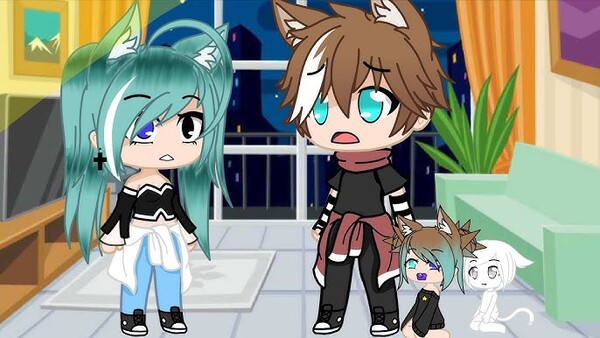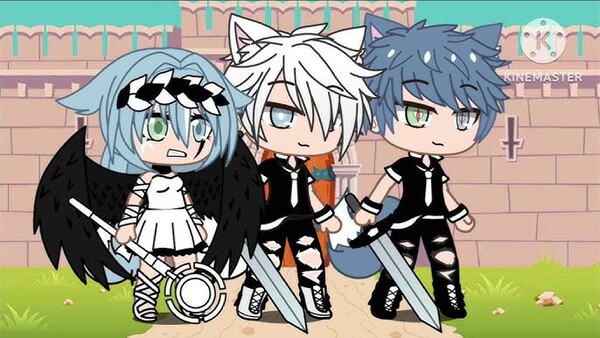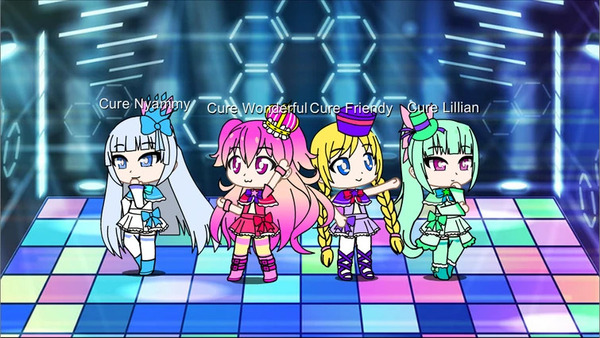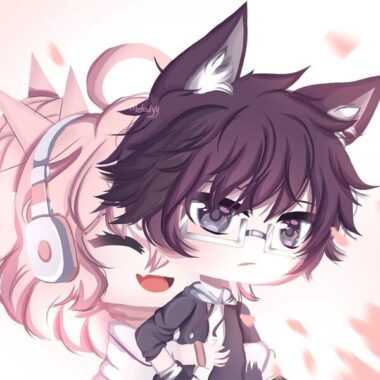Gacha Cute has become a favorite game for fans of character creation, storytelling, and creativity. This game gives players the ability to bring their imagination to life by designing unique characters and crafting engaging scenes. Whether you’re new to Gacha Cute or an experienced creator, this comprehensive guide will help you navigate the game’s key features, build unique characters, and create stories that stand out.
Getting Started: Downloading and Setting Up Gacha Cute
Before diving into character creation, let’s first go through the steps to download and set up Gacha Cute.

Before diving into character creation, let’s first go through the steps to download and set up Gacha Cute.
Downloading the Game
Gacha Cute is available for both mobile and desktop platforms. You can download it from various app stores or trusted websites. Make sure to choose the version compatible with your device.
Configuring Settings for Best Performance
After installation, adjust the settings to optimize game performance. This may include adjusting graphics quality and controls for smoother gameplay, especially on devices with lower specifications.
Exploring the Main Interface
Familiarizing yourself with the interface is the first step toward mastering Gacha Cute.
Navigation and Key Features
The interface includes several tabs like “Studio,” “Dress-Up,” and “Gacha.” Spend some time exploring each tab to understand where different functions are located.
Personalizing Your Profile
Personalize your profile by selecting a display name and a character icon. This will make it easier for friends to recognize you when sharing content in online communities.
Building Your First Character
Character creation is at the heart of Gacha Cute. Here’s how to design your unique avatar.
Choosing Basic Attributes
Start with basic options like skin tone, height, and body type. These foundational choices shape the overall appearance of your character.
Customizing Facial Features
Gacha Cute offers a range of facial features, from eye shapes to mouth expressions. Experiment with these options to make your character’s face stand out.
Styling Your Character with Outfits
After setting up the basics, it’s time to dress up your character.
Selecting Clothing Options
The game includes many clothing options, from casual outfits to fantasy costumes. Choose clothing that suits the theme of your story or scene.
Accessorizing for a Unique Look
Accessories like hats, glasses, and jewelry add a unique touch. Mix and match these to add depth to your character’s personality and appearance.
Understanding the Gacha System
The Gacha system allows you to unlock additional items. Here’s how to maximize your rewards.

The Gacha system allows you to unlock additional items. Here’s how to maximize your rewards.
How to Perform Gacha Rolls
Each roll gives you a chance to unlock rare items. Save in-game currency to perform multi-rolls, which often yield better results.
Earning and Spending In-Game Currency
To get the most out of Gacha rolls, participate in daily activities to earn currency. Spend wisely to unlock valuable items that enhance your gameplay experience.
Setting Up Your Scene in Studio Mode
Studio Mode allows you to place characters in scenes, making it a powerful tool for storytelling.
Positioning Characters and Adding Props
Arrange your characters and props to create a balanced scene. Experiment with different placements until you find the ideal setup.
Using Backgrounds for Atmosphere
Backgrounds help set the mood for your scene. Choose from urban, natural, or abstract settings to match the story you want to tell.
Adding Expressions and Emotions
Expressions are key to conveying emotions and bringing characters to life.
Using Face Expressions
Each character can display a variety of expressions, such as happy, sad, or surprised. Choose an expression that aligns with the scene’s mood.
Adjusting Character Poses
Poses work in tandem with expressions to convey feelings. Experiment with different poses to find one that best fits your character’s personality.
Incorporating Dialogue and Text
Adding dialogue and text bubbles can turn your scene into a complete story.
Speech Bubbles and Thought Bubbles
Use speech bubbles for direct dialogue and thought bubbles for inner thoughts. Arrange these strategically to avoid overcrowding the scene.
Styling Text for Readability
Adjust the size, font, and color of text to ensure it stands out. Proper text styling enhances readability and visual appeal.
Utilizing Props and Special Effects
Props and effects bring depth and realism to your scenes.
Adding Scene Props
Props add context to your scenes, whether it’s furniture for a cozy setting or trees for a forest scene. Select props that enhance the storyline.
Using Special Effects and Filters
Filters, such as lighting effects or particle animations, create atmosphere and emphasize key moments in your story.
Animating Characters for Dynamic Scenes
Animations add a layer of realism, making your characters more engaging.
Basic Character Animations
Start with simple movements like walking or jumping. These small actions make the scene more lively.
Advanced Animation Techniques
Combine animations for complex scenes, like a character walking while waving. Advanced techniques make scenes feel more immersive.
Saving and Sharing Your Creations
Once your masterpiece is complete, save and share it with others.
Saving Scenes and Characters
Save each scene for future edits or to continue a storyline. Organize saved files to easily locate them later.
Sharing on Social Media and Online Communities
Share your creations with the Gacha Cute community on social media platforms or dedicated fan sites. Engaging with other creators can inspire new ideas and enhance your skills.

Share your creations with the Gacha Cute community on social media platforms or dedicated fan sites
Conclusion
Gacha Cute offers endless creative possibilities for character design, storytelling, and scene creation. With these steps, you can explore each feature and create engaging stories that showcase your unique style.


